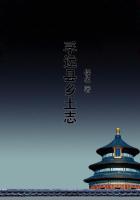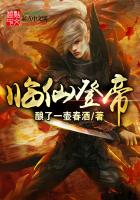THE WISDOM OF THE DEAD
On the morrow Owen baptised the king, many of his councillors, and some twenty others whom he considered fit to receive the rite. Also he despatched his first convert John, with other messengers, on a three months' journey to the coast, giving them letters acquainting the bishop and others with his marvellous success, and praying that missionaries might be sent to assist him in his labours.
Now day by day the Church grew till it numbered hundreds of souls, and thousands more hovered on its threshold. From dawn to dark Owen toiled, preaching, exhorting, confessing, gathering in his harvest; and from dark to midnight he pored over his translation of the Scriptures, teaching Nodwengo and a few others how to read and write them. But although his efforts were crowned with so signal and extraordinary a triumph, he was well aware of the dangers that threatened the life of the infant Church. Many accepted it indeed, and still more tolerated it; but there remained multitudes who regarded the new religion with suspicion and veiled hatred. Nor was this strange, seeing that the hearts of men are not changed in an hour or their ancient customs easily overset.
On one point, indeed, Owen had to give way. The Amasuka were a polygamous people; all their law and traditions were interwoven with polygamy, and to abolish that institution suddenly and with violence would have brought their social fabric to the ground. Now, as he knew well, the missionary Church declares in effect that no man can be both a Christian and a polygamist; therefore among the followers of that custom the missionary Church makes but little progress. Not without many qualms and hesitations, Owen, having only the Scriptures to consult, came to a compromise with his converts. If a man already married to more than one wife wished to become a Christian, he permitted him to do so upon the condition that he took no more wives; while a man unmarried at the time of his conversion might take one wife only. This decree, liberal as it was, caused great dissatisfaction among both men and women. But it was as nothing compared to the feeling that was evoked by Owen's preaching against all war not undertaken in self-defence, and against the strict laws which he prevailed upon the king to pass, suppressing the practice of wizardry, and declaring the chief or doctor who caused a man to be "smelt out" and killed upon charges of witchcraft to be guilty of murder.
At first whenever Owen went abroad he was surrounded by thousands of people who followed him in the expectation that he would work miracles, which, after his exploits with the lightning, they were well persuaded that he could do if he chose. But he worked no more miracles; he only preached to them a doctrine adverse to their customs and foreign to their thoughts.
So it came about that in time, when the novelty was gone off and the story of his victory over the Fire-god had grown stale, although the work of conversion went on steadily, many of the people grew weary of the white man and his doctrines. Soon this weariness found expression in various ways, and in none more markedly than by the constant desertions from the ranks of the king's regiments. At first, by Owen's advice, the king tolerated these desertions; but at length, having obtained information that an entire regiment purposed absconding at dawn, he caused it to be surrounded and seized by night. Next morning he addressed that regiment, saying:--"Soldiers, you think that because I have become a Christian and will not permit unnecessary bloodshed, I am also become a fool. I will teach you otherwise. One man in every twenty of you shall be killed, and henceforth any soldier who attempts to desert will be killed also!"
The order was carried out, for Owen could not find a word to say against it, with the result that desertions almost ceased, though not before the king had lost some eight or nine thousand of his best soldiers. Worst of all, these soldiers had gone to join Hafela in his mountain fastnesses; and the rumour grew that ere long they would appear again, to claim the crown for him or to take it by force of arms.
Now too a fresh complication arose. The old king sickened of his last illness, and soon it became known that he must die. A month later die he did, passing away peacefully in Owen's arms, and with his last breath exhorting his people to cling to the Christian religion; to take Nodwengo for their king and to be faithful to him.
The king died, and that same day was buried by Owen in the gloomy resting-place of the blood-royal of the People of Fire, where a Christian priest now set foot for the first time.
On the morrow Nodwengo was proclaimed king with much ceremony in face of the people and of all the army that remained to him. One captain raised a cry for Hafela his brother. Nodwengo caused him to be seized and brought before him.
"Man," he said, "on this my coronation day I will not stain my hand with blood. Listen. You cry upon Hafela, and to Hafela you shall go, taking him this message. Tell him that I, Nodwengo, have succeeded to the crown of Umsuka, my father, by his will and the will of the people. Tell him it is true that I have become a Christian, and that Christians follow not after war but peace. Tell him, however, that though I am a Christian I have not forgotten how to fight or how to rule. It has reached my ears that it is his purpose to attack me with a great force which he is gathering, and to possess himself of my throne. If he should choose to come, I shall be ready to meet him; but I counsel him against coming, for it will be to find his death. Let him stay where he is in peace, and be my subject; or let him go afar with those that cleave to him, and set up a kingdom of his own, for then I shall not follow him; but let him not dare to lift a spear against me, his sovereign, since if he does so he shall be treated as a rebel and find the doom of a rebel. Begone, and show your face here no more!"















